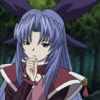
What do we mean by significant? I dunno; let's change the question! What's most influential? Well, influential on whom: giving lots of readers some happiness, giving a few readers lots and lots of happiness, changing the lives of lots of readers, changing the way they read books, changing the way people write books, inspiring lots of games, being arbitrarily required for proper geek culture... anything else? That's already plenty of possibilities; how to weight them? I'll ignore that question and zoom ahead, with a revealed bias toward changing lives and influencing authors.
1. The Lord of the Rings, J.R.R. Tolkien -- this hits them all except maybe changing lives, and even that somewhat -- people thinking they're hobbits, people being opened to geekdom... superbig in the 1960s, I've heard. "Frodo Lives!" Definitely big on games and changing writers.
Ordering after this point is kind of arbitrary.
2. The Hitchhiker's Guide to the Galaxy, Douglas Adams -- definitely fun, but I think the mindchanging aspect is more significant for a lot of people; at Caltech it seemed everyone had read it, even those you wouldn't expect it to, and old professors would at least have heard of the jokes. Shares some vague "British humor" with Monty Python and Terry Pratchett but I don't know about direct lines of influence.
3. Harry Potter and the Philosopher's Stone, J.K. Rowling -- allegedly it made a zillion kids read big books, and has spawned some kid's fantasy knockoff genre. Did the Hugos start going to fantasy books with Harry Potter?
4. Stranger in a Strange Land, Robert A. Heinlein -- I'm not a fan but it's often described as Heinlein almost starting a religion by accident, and I know someone who'd started a "nest" in college because of it. Definitely big on changing people's lives -- at least it's not Ayn Rand.
5. H. P. Lovecraft in general
6. Neuromancer, William Gibson -- that whole cyberpunk movement. Vinge was there first in some ways but AFAIK Gibson caused the authors and the games.
7, Interview with the Vampire, Anne Rice -- see HPL and Gibson; if you spawn your own genre, you're influential.
8. Stormbringer, Michael Moorcock -- I think has had a big impact on games, and maybe fantasy, and Gaiman had that autobiographical story "One Life, Furnished in Early Moorcock"
9. The Sword of Shannara, Terry Brooks -- allegedly this catalyzed all those Tolkien imitators and Extruded Fantasy Product.
10. Ender's Game, Orson Scott Card -- Is it that influential? Well, Coyu notes that Card has high sales, and seems to be a favorite of English classes dabbling in SF.
There's probably more which could be said, including the Asimov/Clarke/Heinlein thing in setting up the field, or getting lots of people readng and writing SF, plus Doc Smith's space opera -- but I don't want to spend more time on this, let someone else take up the challenge.